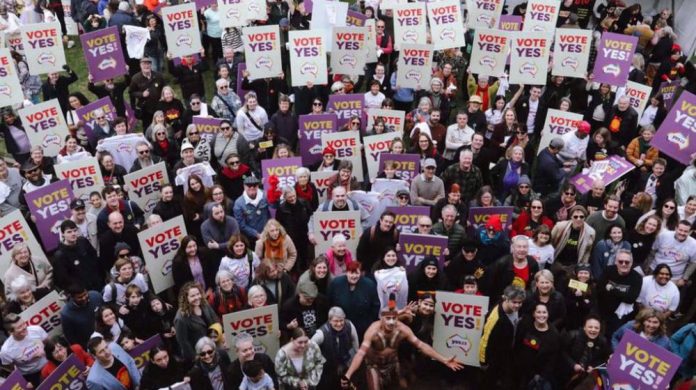In Australia, a referendum to improve the rights of Indigenous Australians has sparked racist slurs as well as toxic debates in the media and online, Digital Journal reports.
Australians will decide on 14 October whether to recognise finally First Nations people in the country’s constitution. Their ancestors were in Australia for 60,000 years before British colonial rule started in the late 1700s.
The referendum will enable representatives of indigenous communities to vote in Parliament – the so-called ‘Voice’. It aims to address entrenched inequalities, including poor levels of health and education, and higher levels of incarceration.
However, according to polls, residents are no longer in favour of the referendum and it is likely to be recognised as a failed one. The debate provoked uncertainty about the scope and consequences of the reform. Moreover, it has become a cause of rising racial tensions. Australia’s Race Discrimination Commissioner Chin Tan told:
It has involved personal attacks, labelling of people as ‘un-Australian’ and perpetuating racially based stereotypes. I am disappointed that the way some people have engaged in the debate has stoked racial tensions and caused harm to First Nations peoples.
Chin Tan believes that racist behaviour goes largely unreported in society. Chin added:
Racism should never be accepted as part of the exchange of ideas in public debate.
Australians will have to make a choice one way or the other, and the latest polls put the proportion in favour at just over 40 per cent and the proportion against at almost 60 per cent, according to Digital Journal.
A year ago, the situation was almost the opposite. Opponents have criticised the proposal for lacking detail and creating unnecessary bureaucracy. However, one of the leading campaigners against Vote Leave, Peter Dutton, said it could cause a “racial rebirth” of Australia. Referendum supporters believe that Dutton is simply scaremongering his opponents.
Reports of Indigenous-related racism have risen sharply since July, according to Sydney University of Technology criminology professor Chris Cunneen, who is leading a project to document such incidents. He said the proportion of racism complaints on the Call It Out register related to the referendum had risen to around 30 per cent since July. In previous months, the figure was 8 per cent. He said:
We have also seen an increase in reports of racism online on social media and in the media during the same period. Combined these make roughly more than half of all reports.
Representatives of the national First Nations mental health helpline, 13YARN, confirm this situation. In March-June, the number of callers reporting abuse, racism and trauma increased by 108 per cent over the previous year, Digital Journal reports.
University of Queensland communications professor Timothy Graham analysed thousands of Vote-related posts on X, formerly Twitter. He found a “catastrophic breakdown of public communication about the referendum across the Australian media ecology”. He claimed:
X/Twitter is overrun with confusion, misinformation, and incivility — this occurs in what can only be described as a vicious feedback loop between politicians, partisan media, and social media.
Samala Cronin, a member of Queensland’s indigenous Batchulla people, has experienced what it’s like. In August, a video of her arguing with an elderly couple over a piece of land to which Aboriginal people have “exclusive native title” was published online. She said:
I got about 3,000 notifications from Facebook and I thought: ‘Oh my God. It has since racked up thousands more reactions on the platform.
There were numerous comments under the video with racist slurs. The eSafety Commission said it recorded a small but noticeable increase in the proportion of First Nations cybercrime complaints in the first half of this year. ESafety Commissioner Julie Inman Grant told:
We’re also hearing from community stakeholders that online abuse is ratcheting up as we approach the referendum.
She urged all Australians to “discuss and debate this issue respectfully, without stooping to slurs, racist remarks, hate speech or abuse”.
